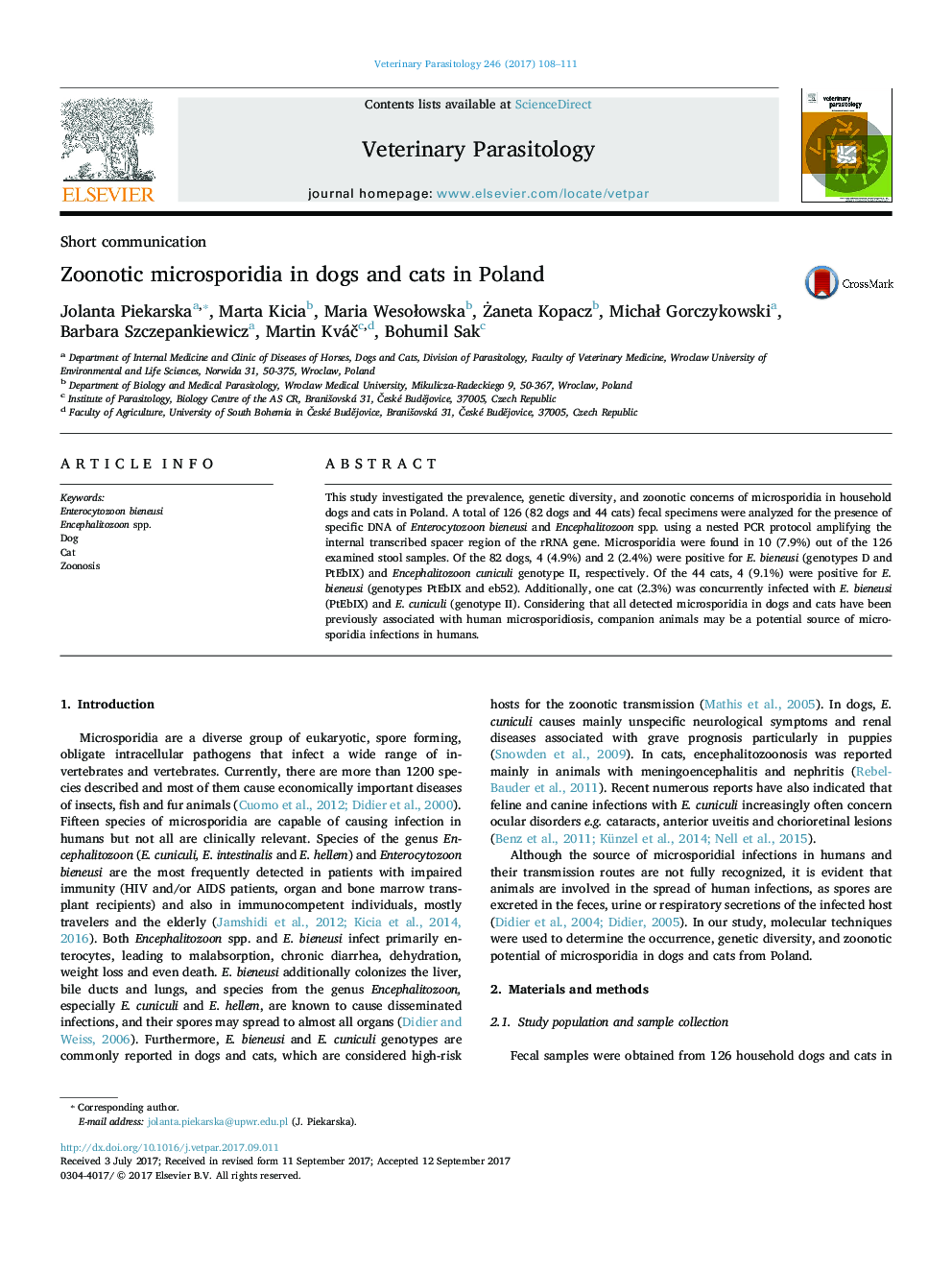| Article ID | Journal | Published Year | Pages | File Type |
|---|---|---|---|---|
| 5545645 | Veterinary Parasitology | 2017 | 4 Pages |
Abstract
This study investigated the prevalence, genetic diversity, and zoonotic concerns of microsporidia in household dogs and cats in Poland. A total of 126 (82 dogs and 44 cats) fecal specimens were analyzed for the presence of specific DNA of Enterocytozoon bieneusi and Encephalitozoon spp. using a nested PCR protocol amplifying the internal transcribed spacer region of the rRNA gene. Microsporidia were found in 10 (7.9%) out of the 126 examined stool samples. Of the 82 dogs, 4 (4.9%) and 2 (2.4%) were positive for E. bieneusi (genotypes D and PtEbIX) and Encephalitozoon cuniculi genotype II, respectively. Of the 44 cats, 4 (9.1%) were positive for E. bieneusi (genotypes PtEbIX and eb52). Additionally, one cat (2.3%) was concurrently infected with E. bieneusi (PtEbIX) and E. cuniculi (genotype II). Considering that all detected microsporidia in dogs and cats have been previously associated with human microsporidiosis, companion animals may be a potential source of microsporidia infections in humans.
Related Topics
Life Sciences
Agricultural and Biological Sciences
Animal Science and Zoology
Authors
Jolanta Piekarska, Marta Kicia, Maria WesoÅowska, Å»aneta Kopacz, MichaÅ Gorczykowski, Barbara Szczepankiewicz, Martin KváÄ, Bohumil Sak,
